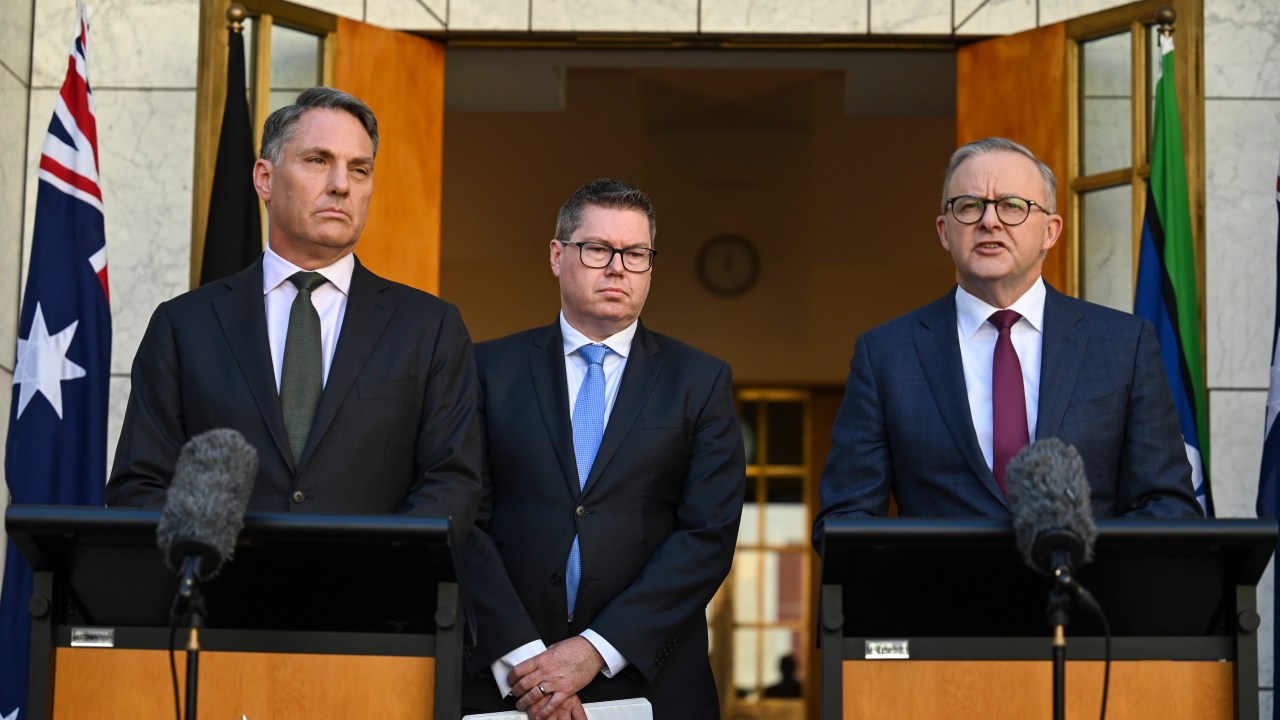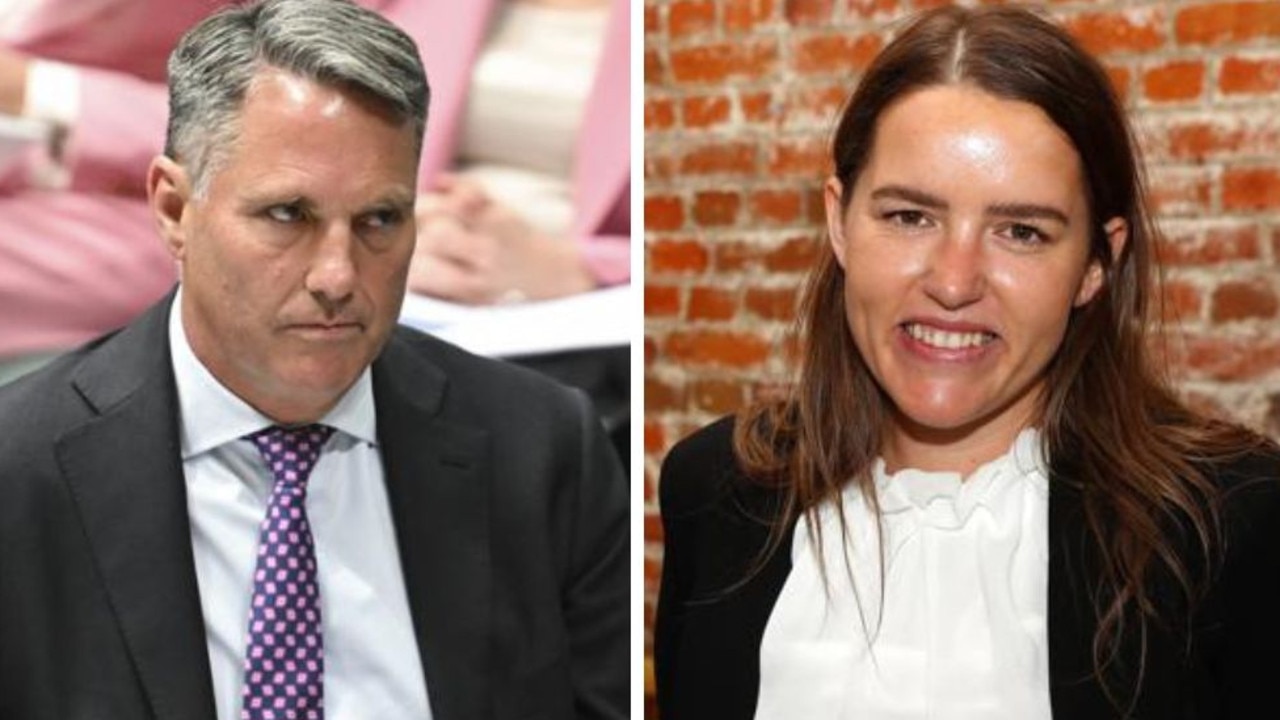Richard Marles’ ascent within the Australian Labor Party is a compelling narrative of political ambition and strategic maneuvering. From his early career to his current position as Deputy Prime Minister, his journey has been marked by significant policy contributions, key appointments, and a consistently evolving public image. This exploration delves into his political career, examining his foreign policy stances, his relationships with key political figures, and the media’s portrayal of his leadership.
We will analyze his performance in office, considering both his successes and the criticisms he has faced.
This detailed analysis will cover his role in shaping Australia’s domestic and foreign policy, offering insights into his decision-making processes and the impact of his actions on the nation. We will also explore the complexities of his political relationships, examining both collaborations and conflicts with colleagues and political adversaries. Through careful examination of his career trajectory and public perception, we aim to provide a comprehensive understanding of Richard Marles’ influence on Australian politics.
Richard Marles’ Political Career
Richard Marles’ career exemplifies a steady ascent within the Australian Labor Party, marked by significant policy contributions and a growing influence on national politics. His trajectory showcases a blend of academic background, strategic political maneuvering, and a commitment to key Labor principles.
Career Progression within the Australian Labor Party
Marles’ journey within the ALP began with his involvement in party activities and community engagement before entering parliament. His dedication and strategic approach quickly led to increased responsibilities and prominence within the party structure. He consistently demonstrated an ability to navigate internal party dynamics effectively, building alliances and consolidating his position. This progression reflects a calculated and ambitious approach to political advancement, characteristic of successful politicians.
Key Political Appointments and Positions Held
A chronological overview of Richard Marles’ key roles highlights his increasing responsibility and influence. While a precise timeline requires extensive research across multiple sources, key appointments include his election to the House of Representatives, various shadow ministerial roles, and ultimately, his ascension to Deputy Prime Minister and Minister for Defence. Each position involved managing complex portfolios, requiring strong leadership and policy expertise.
His experience in various portfolios has broadened his understanding of the diverse challenges facing Australia.
Deputy Prime Minister Richard Marles’s recent focus on economic stability is particularly relevant given the current business climate. The news of mosaic brands voluntary administration highlights the challenges facing Australian businesses, a concern undoubtedly weighing on Mr. Marles’s policy considerations as he navigates these complex economic headwinds.
Significant Policy Contributions and Legislative Achievements
Marles’ policy contributions are extensive and span various areas. He has been actively involved in debates and legislation related to national security, industrial relations, and economic policy. While specific legislative achievements require detailed analysis of parliamentary records, his contributions to policy development are evident in his ministerial roles and public statements. His deep understanding of geopolitical dynamics has shaped his approach to national security policy.
Richard Marles, Australia’s Deputy Prime Minister, is known for his significant role in shaping the nation’s foreign policy. For a different kind of puzzle-solving challenge, you might enjoy tackling the brain-teasing clues found in the daily nyt crossword clues ; perhaps a relaxing contrast after a day of navigating complex political issues. Returning to Mr. Marles, his dedication to public service is undeniable.
Furthermore, his work on economic policy has reflected a commitment to social justice and sustainable economic growth.
Comparison of Political Stances with Other Prominent Figures
Comparing Marles’ political stances with other prominent figures requires a nuanced approach. His views on key issues, such as climate change, economic management, and national security, can be compared and contrasted with those of individuals like Anthony Albanese, Peter Dutton, and other influential politicians. While a detailed analysis is beyond the scope of this brief overview, a common thread in his positions often demonstrates a focus on multilateralism, social equity, and a pragmatic approach to policy-making.
He frequently emphasizes collaboration and consensus-building, differentiating his approach from some more confrontational political styles.
Marles’ Role as Deputy Prime Minister
Richard Marles’ ascension to the position of Deputy Prime Minister of Australia marked a significant moment in his political career. This role, second only to the Prime Minister, carries substantial weight and influence within the Australian government. Understanding his responsibilities and approach to the position provides valuable insight into the dynamics of the current government.The Australian Deputy Prime Minister’s responsibilities are multifaceted and often depend on the Prime Minister’s delegation.
Generally, the Deputy Prime Minister acts as a key advisor to the Prime Minister, deputising for them when necessary, both domestically and internationally. They often lead or significantly contribute to the government’s agenda on key policy areas, chairing cabinet committees, and representing the government at significant events. Furthermore, they play a crucial role in maintaining party unity and coordinating government policy across different departments.
The Deputy Prime Minister also assumes the role of Prime Minister should the office become vacant.
Marles’ Approach and Priorities
Richard Marles’ approach to the Deputy Prime Ministership has been characterized by a focus on key areas aligned with the broader government agenda. He has prioritized strengthening Australia’s relationships with key allies, particularly in the Indo-Pacific region. Domestically, economic stability and social policy initiatives have also featured prominently in his public pronouncements and actions. His style has been described as collaborative and pragmatic, emphasizing consensus-building within the government and with key stakeholders.
This approach reflects a desire to build broad support for the government’s policies.
Examples of Marles’ Actions and Decisions
As Deputy Prime Minister, Richard Marles has undertaken several high-profile engagements. For instance, his numerous overseas trips have focused on reinforcing Australia’s diplomatic ties and promoting regional security cooperation. These engagements involved significant negotiations and policy discussions. Domestically, he has played a leading role in shaping and implementing key government policies, often coordinating efforts across multiple government departments to achieve specific objectives.
While specific details of internal cabinet discussions are often kept confidential, his public statements and appearances indicate a proactive involvement in shaping the government’s policy direction.
Public Reaction and Media Coverage
Public and media reaction to Richard Marles’ performance as Deputy Prime Minister has been mixed. While some commentators have praised his diplomatic efforts and collaborative approach, others have offered criticism on specific policy decisions or the government’s overall performance. Media coverage has been extensive, reflecting the significant role of the Deputy Prime Minister in the Australian political landscape.
The level of scrutiny and analysis varies depending on the specific issue at hand and the prevailing political climate. Overall, assessing the overall public opinion requires a nuanced understanding of the various perspectives and ongoing political debates.
Public Perception and Media Coverage of Richard Marles
Public perception of Richard Marles has been a dynamic interplay of positive and negative portrayals in the Australian media landscape. His career has seen periods of significant media attention, shaping public opinion and influencing his political trajectory. Understanding this media narrative is crucial to comprehending his overall standing within Australian politics.
Summary of Media Portrayals
Media coverage of Richard Marles has been multifaceted, reflecting both his strengths and weaknesses as a politician. Positive portrayals often highlight his intellect, his policy expertise, particularly in areas of defence and foreign affairs, and his ability to articulate complex issues in an accessible manner. He has been lauded for his calm and measured demeanor, contrasting with more fiery political figures.
Conversely, negative portrayals have focused on criticisms of his policy positions, perceived inconsistencies, and occasional gaffes. The media has also scrutinized his role in specific political events, sometimes presenting conflicting narratives depending on the publication’s political leaning. This diverse coverage creates a complex picture of Marles in the public eye, preventing a singular, easily defined perception.
Examples of Significant Media Coverage, Richard marles
Several instances of media coverage have significantly impacted public perception of Richard Marles. For example, his role in the government’s response to the AUKUS submarine deal generated considerable media attention. News reports covering his explanations and justifications of the deal were widely disseminated, influencing public opinion on both the deal itself and Marles’ competence as a minister. Similarly, coverage of his pronouncements on foreign policy, particularly concerning China, have been closely analyzed and debated across various media platforms, shaping public understanding of his approach to international relations.
Conversely, any instances of perceived missteps or inconsistencies in his statements have also received substantial media coverage, impacting public trust and confidence.
Key Criticisms and Controversies
Throughout his career, Richard Marles has faced several criticisms. Some commentators have questioned the consistency of his policy positions across different periods, pointing to shifts in his stances on particular issues. Other criticisms have centered on his handling of specific political situations, with media outlets offering varying perspectives on his performance. While specific examples would require referencing specific articles and broadcasts, it’s important to note that the intensity and impact of these criticisms have varied over time, depending on the political climate and the prevailing news cycle.
The media’s role in disseminating these criticisms has undeniably influenced public opinion.
Evolution of Public Perception
Public perception of Richard Marles has evolved considerably throughout his career. Initially, he might have been viewed as a rising star within the Labor party, characterized by his intellectual capabilities and policy expertise. Subsequent media coverage, however, has introduced complexities to this initial perception. Significant events and controversies have shaped public opinion, leading to periods of both increased support and criticism.
The overall evolution of public perception reflects a dynamic process influenced by the interplay of media coverage, political events, and the broader political context within Australia.
Richard Marles’ career exemplifies the dynamic nature of Australian politics. His trajectory, from rising through the ranks of the Labor Party to becoming Deputy Prime Minister, reveals a blend of strategic political acumen and policy expertise. While his tenure has been marked by both praise and criticism, his influence on Australian foreign policy and domestic politics is undeniable. Understanding his approach to leadership, his key policy initiatives, and the public’s perception of his performance is crucial to comprehending the current political landscape of Australia.
Further analysis of his future actions will undoubtedly enrich our understanding of his lasting legacy.
Popular Questions
What is Richard Marles’ educational background?
Information on Richard Marles’ formal education is readily available through publicly accessible sources such as his official biography and news articles.
What are some of the key challenges Richard Marles faces as Deputy Prime Minister?
The challenges faced by the Deputy Prime Minister are multifaceted and constantly evolving, encompassing domestic and international issues. Specific examples could include navigating complex coalition dynamics, managing public perception, and responding to unforeseen crises.
How has Richard Marles’ public image changed over time?
Analysis of media coverage and public opinion polls over time will reveal shifts in public perception of Richard Marles. This would require a longitudinal study of media representation and public sentiment.



